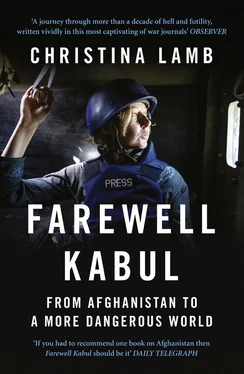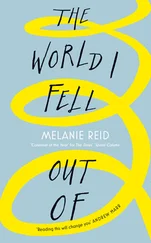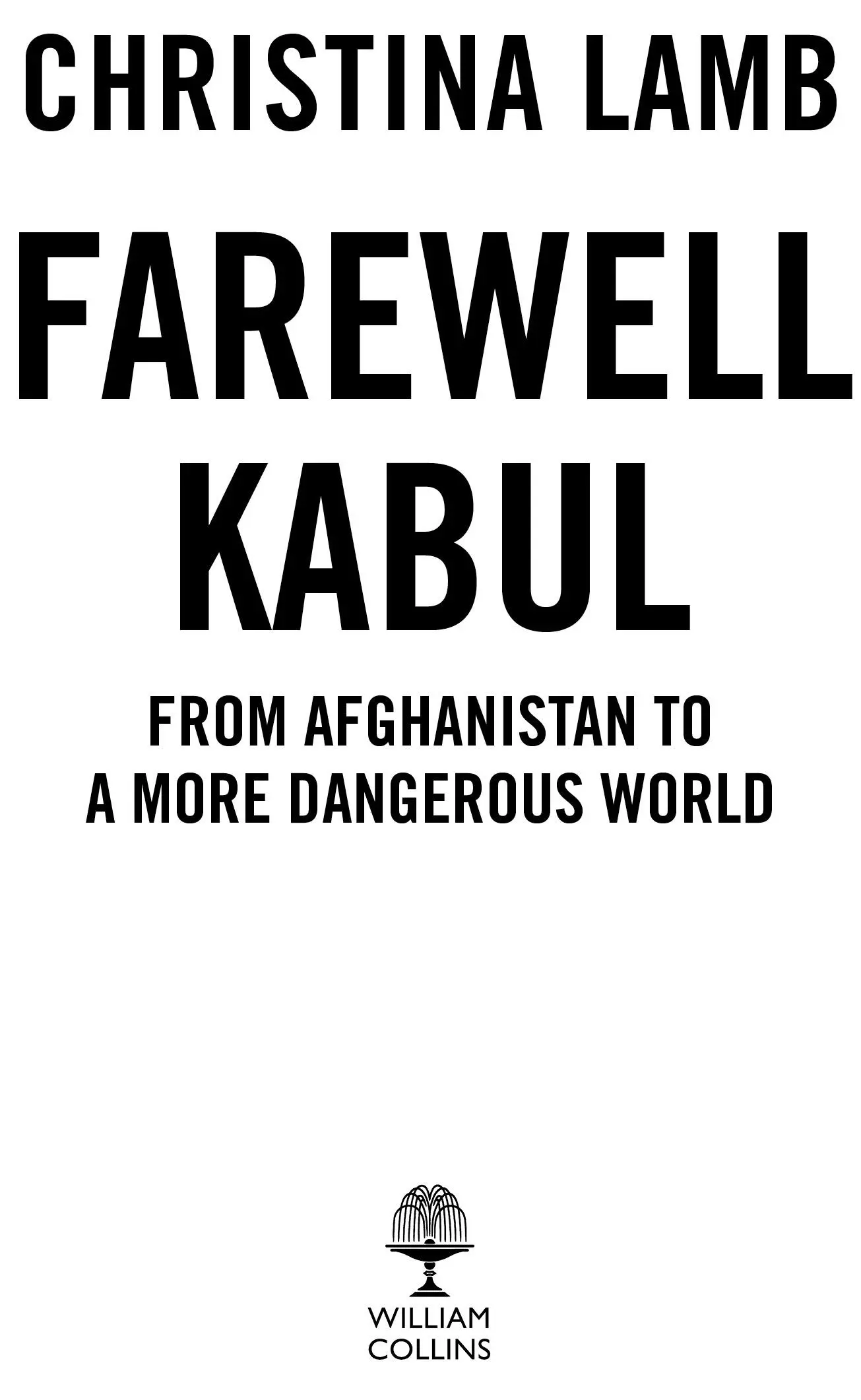
William Collins
An imprint of HarperCollins Publishers
1 London Bridge Street
London SE1 9GF
www.WilliamCollinsBooks.com
First published in Great Britain by William Collins in 2015
Copyright © Christina Lamb 2015
Christina Lamb asserts the moral right to
be identified as the author of this work
Cover photograph: Justin Sutcliffe
Maps by John Gilkes
A catalogue record for this book is
available from the British Library
All rights reserved under International and Pan-American Copyright Conventions. By payment of the required fees, you have been granted the non-exclusive, non-transferable right to access and read the text of this e-book on screen. No part of this text may be reproduced, transmitted, down-loaded, decompiled, reverse engineered, or stored in or introduced into any information storage and retrieval system, in any form or by any means, whether electronic or mechanical, now known or hereinafter invented, without the express written permission of HarperCollins.
Source ISBN: 9780007256921
Ebook Edition © April 2015 ISBN: 9780008171278
Version: 2016-03-18
In memory of all those who lost their lives to terrorism – or fighting it – from New York to London to Kandahar to Peshawar
It is fatal to enter any war without the will to win it.
General Douglas MacArthur
Cover
Title Page
Copyright
Dedication
Epigraph
Maps
The Leaving
PART 1: GETTING IN
1 Rule Number One
2 Sixty Words
3 Making – and Almost Killing – a President
4 Ground Zero
5 Losing bin Laden – the Not So Great Escape
6 A Tale of Two Generals
7 Taliban Central
8 Merchants of Ruin – the Return of the Warlords
9 Theatre of War
10 A Tale of Two Wars
11 Voting With Mullah Omar
PART II: WAR
12 Ambush
13 Bringing Dolphins to Helmand
14 Tethered Goats
15 The President in His Bloody Palace
16 Whose Side Are You On?
17 The Snake Bites Back
18 The Weathermen of Kandahar
19 We’ll Always Have Kabul
20 Death of a Poet
21 Meeting Colonel Imam
PART III: THE GOOD WAR
22 The View From Washington
23 All About the Politics
24 The Butcher of Mumbai
25 Losing the Moral High Ground in Margaritaville
26 Chairman Mullen and the Cadillac of the Skies
PART IV: GETTING OUT
27 Killing bin Laden
Postscript: War Never Leaves You
Appendix: The Costs of War
Picture Section
Acknowledgements
Notes
Select Bibliography
Index
Also by Christina Lamb
About the Author
About the Publisher
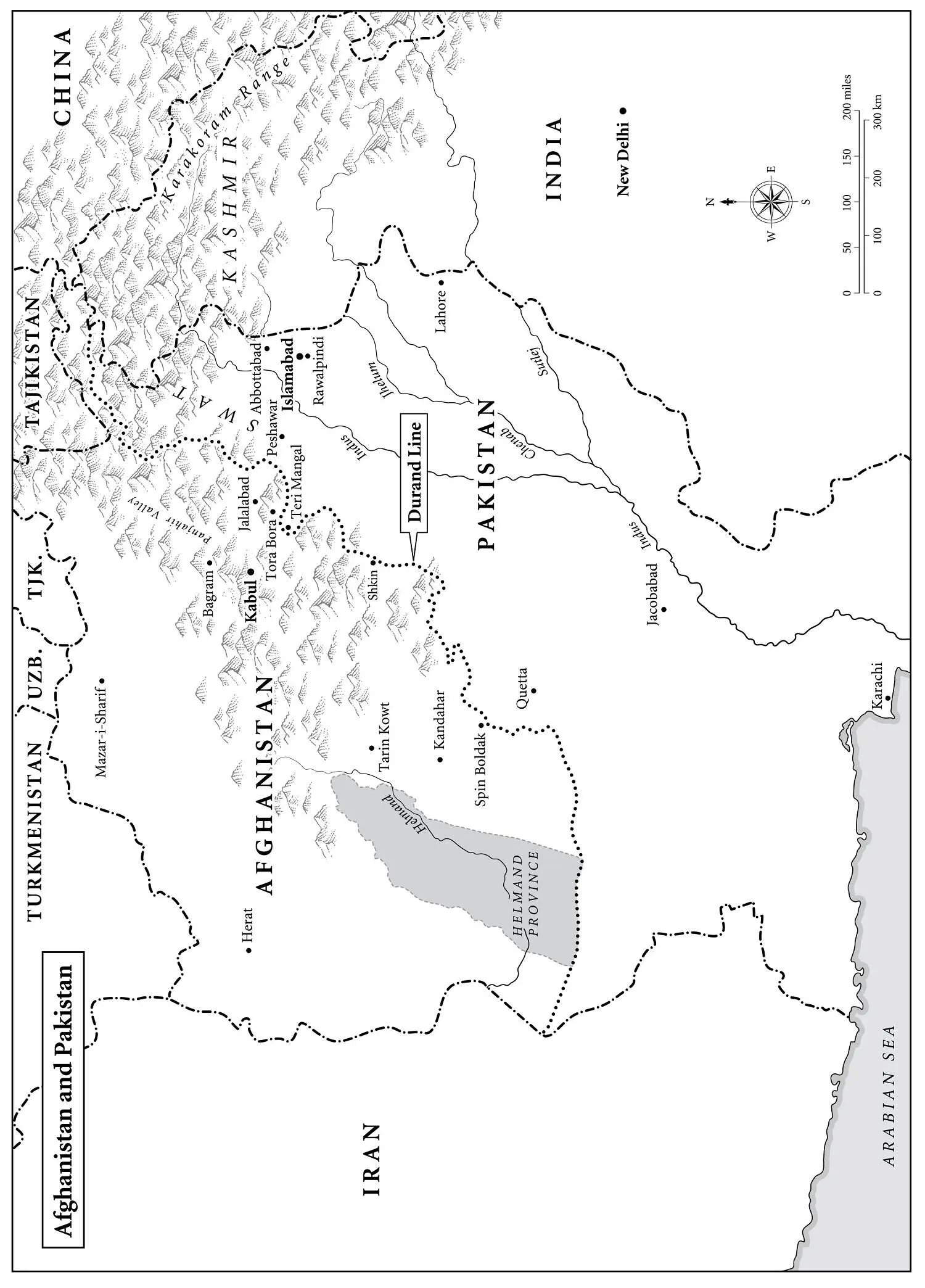
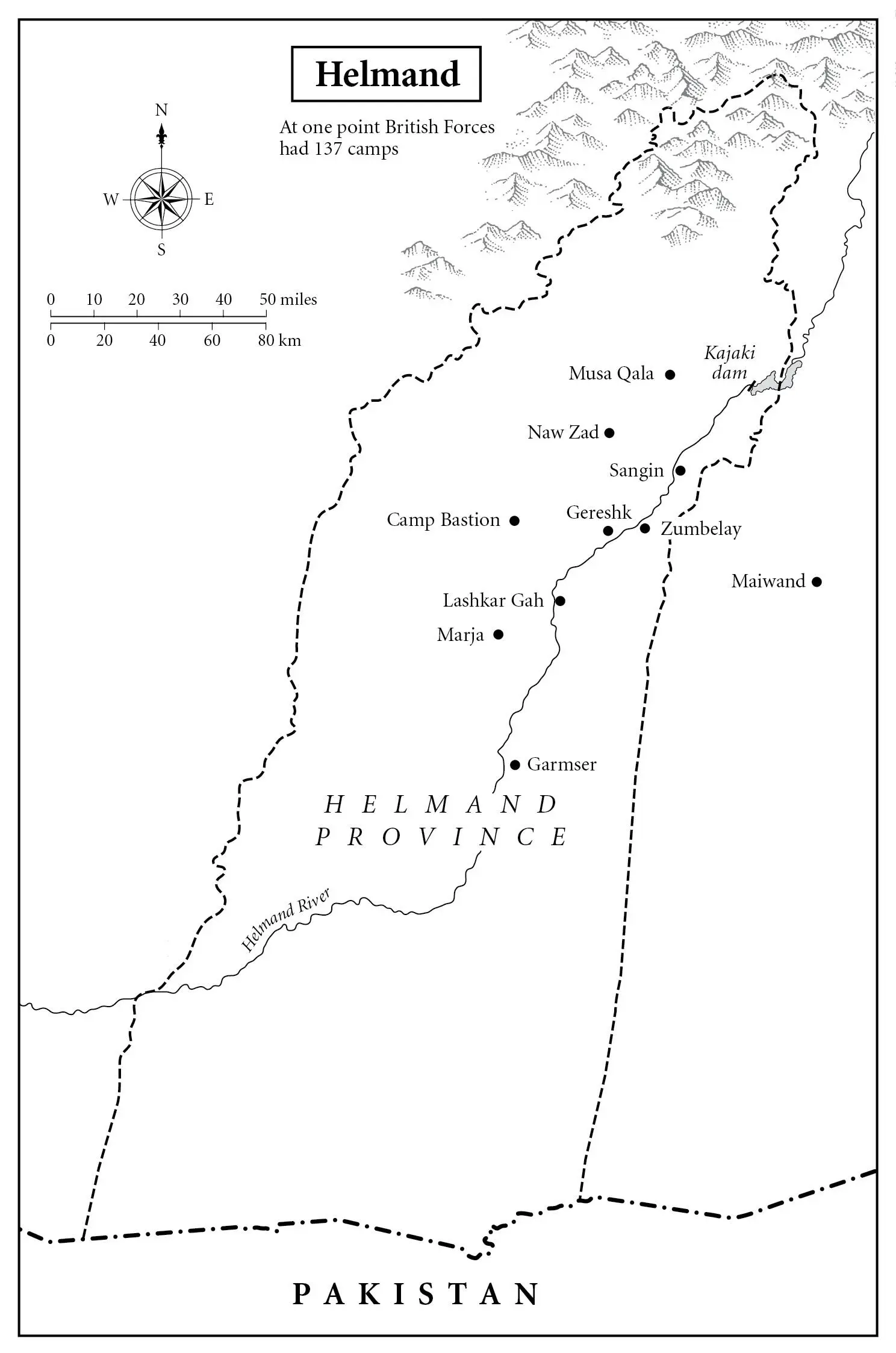
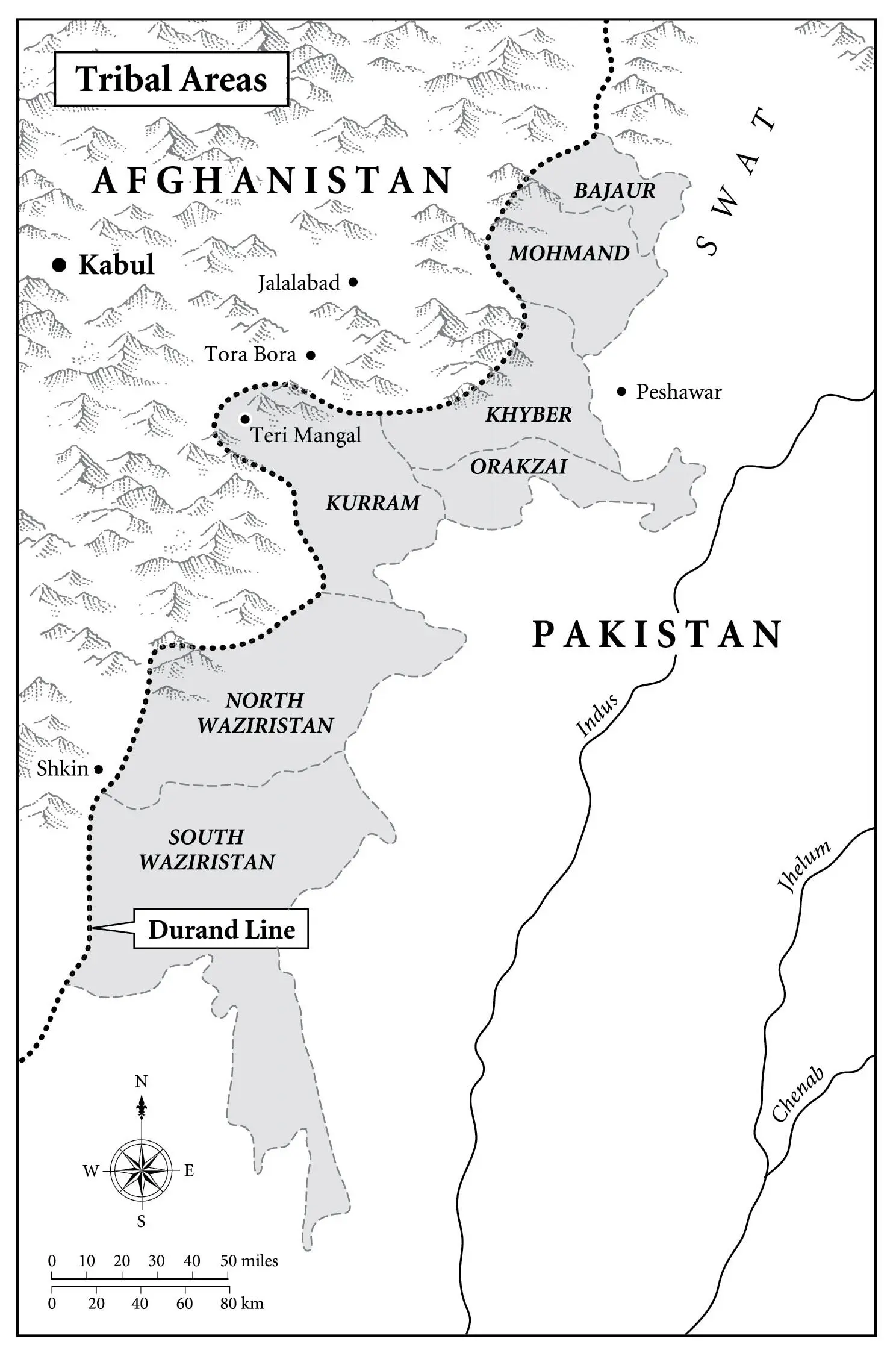
Camp Bastion, Helmand, 26–27 October 2014
‘Ladies and gentlemen, please take your seats for the End of Operations Ceremony!’ The American voice boomed enthusiastically over the speakers as if it were the drum roll for a sporting event.
Rows of grey fold-up chairs had been arranged facing a large blast wall painted with murals marking each of the last few commands in Helmand. In front of the wall two detachments of US Marines and British troops stood to attention, flanked on either side by Afghan soldiers, who had been instructed beforehand not to hold hands. Above flew four flags – the Union Jack, the Stars and Stripes, and those of NATO and Afghanistan.
A padre read some Koranic verses, then three American generals took turns at the plinth to speak. One of them was the last commander in Helmand, Brigadier General D.D. Yoo of the US Marines, a man of Napoleonic stature both in height and personality who took the mike from the lectern to strut in front of the audience as if about to burst into song.
Phrases from the speakers, each as determinedly upbeat as the announcer, swam in the hot air like speech bubbles. No one spoke of defeat, or retreat, or withdrawal in the face of an intransigent enemy, or of publics and politicians back home who could take no more flag-draped coffins.
‘This transfer is a sign of progress,’ said Brigadier General Yoo. ‘It is not about the coalition. It is really about the Afghans and what they have achieved over the last thirteen years.’
Helmand would now be under control of Afghan forces, commanded by Major General Sayed Malouk. ‘We are ready,’ Malouk insisted, even though he didn’t quite look me in the eye as he said it. He had already lost almost eight hundred men that fighting season, and had himself narrowly escaped a roadside bomb in Sangin.
No British officer spoke, and Britain’s eight-year role in Helmand garnered barely a mention, which seemed odd, for this had been the country’s longest war in modern times, and its hardest fighting for more than half a century.
The hot sun beat down and guests swigged from bottles of mineral water as ‘God Save the Queen’ and ‘The Star-Spangled Banner’ were played and the flags were lowered. The Union Jack was carefully folded, and handed to Brigadier Rob Thomson, the last British commander. Only the Afghan flag was left fluttering as Camp Bastion came under Afghan command, and Britain’s fourth war in Afghanistan officially came to an end.
Guests were taken into a cabin where a banquet lunch of smoked salmon, slow-cooked beef and chocolate fudge cake had been specially flown in. The genial Afghan army chief General Sher Mohammad Karimi presented Brigadier General Yoo with a commemorative certificate and a carpet, and both sides took souvenir photographs. It all seemed surreal.
I felt tears stinging my face. Four hundred and fifty-three British soldiers had been lost in Afghanistan, of whom 404 died in Helmand, many of them young enough to be my son. Hundreds more had lost limbs to roadside bombs or been mentally scarred for life. Tens of thousands of Afghans had lost relatives or homes, and I had met many Helmandis living as refugees in a camp in Kabul, begging for scraps of dry bread and meat fat, and burying children in the mornings who had frozen to death overnight in the winter cold.
Watching the flag come down felt like the end of everything. This fierce, turtle-shaped country had been part of my entire adult life, longer than any relationship or job. It was twenty-seven years since I’d first come to Afghanistan as a young wannabe foreign correspondent, crossing the Hindu Kush with the mujaheddin fighting the Russians, and falling unequivocally in love with this land of pomegranates and war. I’d had narrow escapes in muddy fields nearby, both with those mujaheddin who went on to become Taliban, and then with British soldiers fighting those Taliban. My first big assignment was covering the Soviet withdrawal in 1989, and never in my wildest dreams had I imagined I would be back a quarter of a century later, covering my own country’s ignominious departure. Just as after the Russians had gone, everyone had lost interest in Afghanistan, now Western troops were leaving I wondered if anyone would care.
Читать дальше
